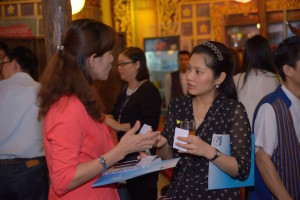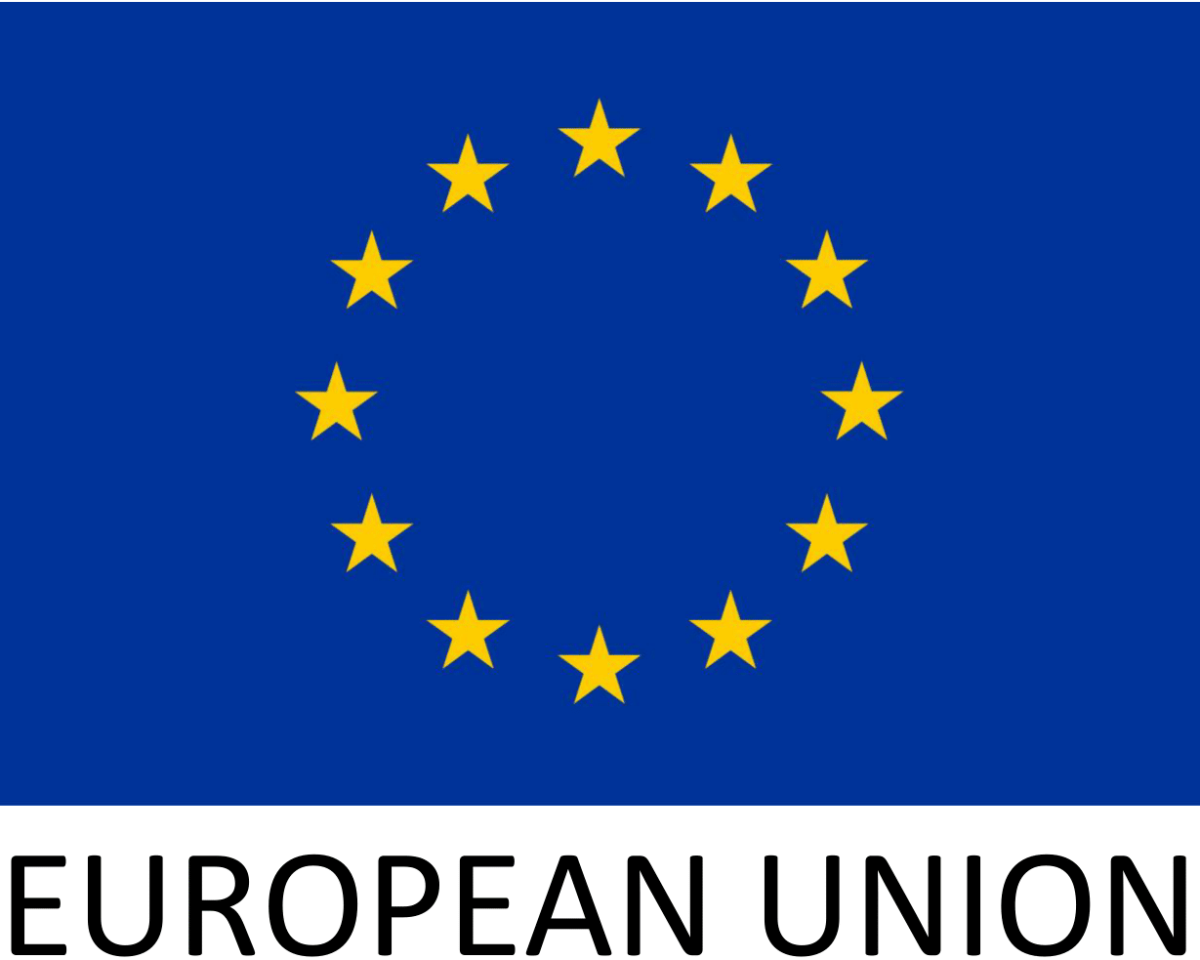 How the EU project SMART Myanmar has been helping the MGMA become a stronger, more professional and responsible steward in the development of Myanmar’s garment industry
How the EU project SMART Myanmar has been helping the MGMA become a stronger, more professional and responsible steward in the development of Myanmar’s garment industry
There are two places in Asia generating a big buzz among brands and international manufacturing groups. One of them, Vietnam, is well-known and long ago “discovered”. The other, Myanmar, was until recently somewhat like a black hole for information. This is no longer the case. Now, Yangon is home to the representative offices of more than a dozen brands, inspections companies and international suppliers. As well, The Myanmar Garment Manufacturers Association (MGMA) has become a conduit of information for incoming investors, NGOs and policymakers and a facilitator for responsible development within the industry.
Just as the industry is growing in Myanmar, so too has the MGMA – the apex apparel association in Myanmar – been growing and changing with it. To help keep-up with the pace of change and to help the MGMA sync effectively with the expectations of international brands and investors, SMART Myanmar has been working since 2013 on capacity building of the association. This article discusses some of the successes and struggles MGMA has experienced as a business association operating in Asia’s most dynamic frontier market.
From Club to Services Provider
Until recently the MGMA’s role was, like most other business associations in Myanmar, focused on monitoring the industry and gathering for ad hoc advocacy rather than on services delivery. This was a function of its structure and of the country’s unique history. It was impossible for an organization run by manufacturers working on a voluntary basis to deliver effective services. Information was given out via meetings and informally and events and activities were organized infrequently. MGMA’s most successful services delivery area was its skills training center.
Starting 2013, the MGMA began to professionalize. In addition to helping the previously existing staff become more organized and professional, MGMA has created new positions responsible for business matchmaking and supporting educational seminars and interventions on responsible business practices. Since launching commercial business matchmaking services in February, 2015 the association has helped several paying clients engage in more productive sourcing missions. One client the MGMA helped said this of the new service:
“The Dishang Group have found the MGMA to be an excellent resource to locate and develop relationships with local manufacturers. Their range of contacts and extensive knowledge of the Myanmar trade environment have been extremely helpful in establishing goods links and a successful foundation {in Myanmar}.”
Philip Roebuck, Director, Dishang Group
Of the several Several companies who have used the service since it launched, at least 3 have described the matchmaking service as very useful. One European brand immediately placed an order and two others indicated they would place test orders within 2 months of their visit.
Commercially Successful Events
Starting in 2014, the MGMA began organizing business networking events and new educational seminars for its member companies. In past years, the association had focused on organizing formal meetings and facilitating events sponsored by outside organizations, but they had not internally organized their own events and chosen their own seminar topics.
Networking events over the past half-year include:
• The First Annual MGMA Factory Awards Dinner in October, 2014
• An evening business networking event during the visit of the SMART Myanmar EU delegation of 17 European companies in March, 2015
• A “Monsoon Meet-up” business networking event in June, 2015
The next major networking event will be on October 24th, 2015 – The 2nd Annual Factory Awards Dinner. This event will be even larger and more beneficial for the participating companies.
These commercial events bring companies together – brands, manufacturers, inputs and accessories suppliers, logistics companies and consultants – for useful and powerful networking. They are also enjoyable for member companies and they generate revenue for the association. It is our intention for about a quarter of MGMA’s future operations budget to come from member events revenue.
An Industry ‘Code of Conduct’ and Educational Seminars
To guide responsible development in the industry, the MGMA carefully developed and drafted a first-ever Code of Conduct for the Myanmar apparel industry. With official versions available in both Myanmar and English. The MGMA has been using this document to educate and guide member companies on key issues important for occupational health and safety. In addition to creating a healthier and successful work environment, responsible business practices are essential for those companies wishing to export to the European and US markets.
MGMA introduced a CSR desk in May, 2015 to govern the Code of Conduct and its implementation. To educate on topics included in the Code of Conduct, MGMA has started organizing informational workshops and seminars. (In addition, the MGMA has helped several international projects in specific factory programs spanning more than 20 different factories.) The seminar series is designed as a monthly briefing on different topics relevant for the responsible and commercially viable development of the industry.
The first seminar on June 20th was taught by an expert from TÜV SÜD and was entitled The Restricted Substances List in Apparel Industries - Introduction and Current Trends. MGMA hosted this seminar at the association’s training institute in north Yangon. Experts from TÜV SÜD shared information about chemicals inventory management, avoiding dangerous chemicals, controlling your supply chain and how to avoid a hazardous impact on the local environment.
The next scheduled seminars are:
Factory Fire Safety and Prevention
- by WRAP on August 15th, 2pm-5pm
Technical, Social and Environmental Standards For Garment Factories – Adding Value Through Sustainable Approaches - by Control Union in September.
Seminars for October and November are open to interested companies and organizations who wish to present on relevant topics. Email: [email protected] with your proposal.
Communications and International Outreach
In June, 2014 the association launched a website, www.myanmargarments.org. This site has quickly become a clearinghouse for information on Myanmar’s garment sector and presently receives over 5,500 page views per month and growing. The most visited page is MGMA’s summary of Myanmar’s existing labour laws and regulations. Frequently, when investors visit the MGMA office these days they come after reading the association’s website. This helps sector briefings – which MGMA provides to all interested investors, brands and suppliers free-of-charge – to be more productive and detailed.
The new association website has also helped the association organize the planning of important meetings. Before the association had a website visitors often had difficulty finding the appropriate contact information of the MGMA. Now, a simple Google search makes it possible, and meetings are scheduled in advance and at appropriate times of day.
In addition, MGMA has increasingly engaged in international outreach, sending a delegate to the China and Asia Textile Forum in Beijing, exhibiting on behalf of the sector at the Bangkok International Fashion Fair, and sending delegates to expositions in Shanghai, Paris and Milan.
Data Management and Research Services
MGMA has better data on the Myanmar garment industry than any other organization in the country. Because of its role in the import licensing procedure, the association receives product details and order volume sizes for its member factories. Over the last year we have cleaned-up and improved the organization of this data and the association started selling copies of the membership list – updated quarterly – to visiting buyers and interested suppliers.
As well, the MGMA created and sold its first-ever annual research report Myanmar’s Garment Sector – Opportunities and Challenges in 2015. This report is a useful introduction to the garment sector for international brands and suppliers and also generates revenue for the association. This report sets a standard for future data reports and information dissemination. The 2016 report will be produced with more input from local staff and will be even more robust and comprehensive. Further, these reports are distributed via the internationally respected online garment and textile magazine www.Just-Style.com.
The MGMA is in the process of hiring a full time data officer to further improve the accuracy and details on its member companies.
More Effective and Informed Policy Advocacy
One of MGMA’s main functions since its formation in 2002 has been policy advocacy. However, in the past this has often been done only during meetings with officials and other sector stakeholders. Policy papers have normally taken the form of brief PowerPoint presentations. However, with better data and capable research officers and professional staff, MGMA will soon be much better able to study issues intensively and make advocacy decisions on precise data and and up-to-date facts. Among other things, this will be critically important as Myanmar’s garment sector becomes a larger and more competitive player on the global stage.
Current major challenges
Some advocacy issues, such as the recently debated minimum wage amount, are controversial. However, precise data definitely support a more informed and constructive debate. Other issues, such as wastewater treatment facilities, power grid development or banking sector reform – are in need of coordinated and informed advocacy by the MGMA, supported by accurate and relevant data.
Conclusion
Myanmar’s garment sector is growing quickly and a strong, organized and responsible industry association benefits everyone. SMART Myanmar is pleased to be able to continue to support the association in its development. To learn more about the other activities of SMART Myanmar visit: www.smartmyanmar.org
Author: Jacob A. Clere










